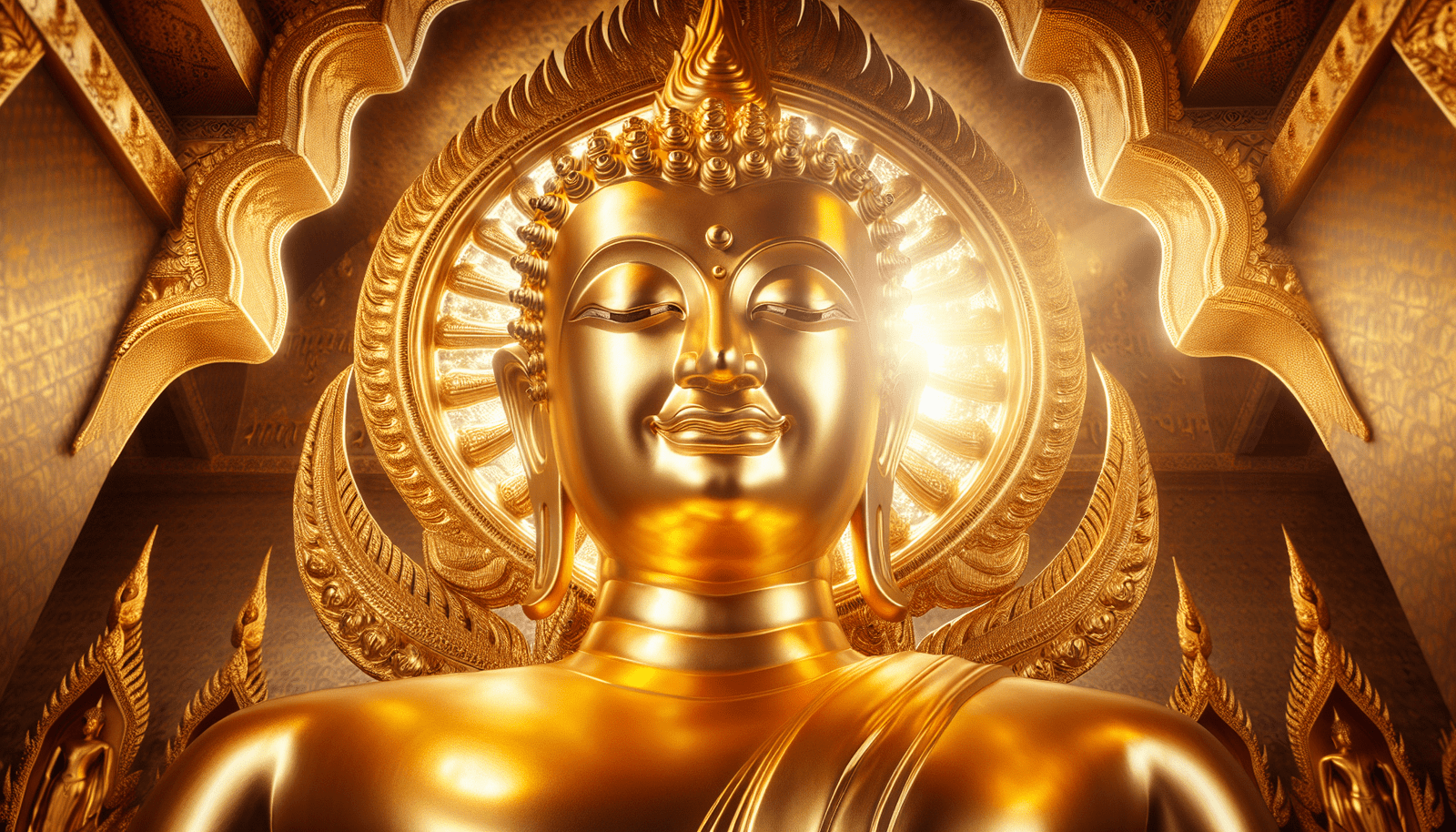Have you ever wondered why gold is often referenced in religious texts across different faiths? In this article, we will delve into the symbolism of gold in various religious scriptures, exploring its significance and deeper meanings. Join us as we decode the hidden messages behind this precious metal in different spiritual contexts.
The Symbolism of Gold in Christianity
In Christianity, gold is often associated with divinity, purity, and the glory of God. Throughout the Bible, gold is mentioned as a symbol of wealth, power, and beauty. For example, in the story of the three wise men bringing gifts to baby Jesus, gold is one of the presents they offer, symbolizing the divine nature of the newborn King.
The Golden Calf in Exodus
One of the most well-known references to gold in the Bible is the story of the golden calf in the book of Exodus. When Moses went up to Mount Sinai to receive the Ten Commandments from God, the Israelites grew impatient and asked Aaron to make them a god they could worship. Aaron collected gold from the people and fashioned a golden calf, which the Israelites then worshipped, angering God.
This story serves as a cautionary tale about the dangers of materialism and idolatry. The golden calf symbolizes the temptation to worship wealth and earthly possessions instead of God. It reminds believers to remain faithful and humble in their devotion to the divine.
The Symbolism of Gold in Hinduism
In Hinduism, gold holds a special significance as a symbol of purity, prosperity, and spiritual enlightenment. Gold is considered a sacred metal that represents the divine and serves as a link between the material and spiritual worlds. It is often used in religious ceremonies, rituals, and offerings to the gods.
The Golden Temple in Amritsar
One of the most famous examples of the importance of gold in Hinduism is the Golden Temple in Amritsar, India. This Sikh gurdwara is covered in gold leaf and is considered the holiest place in Sikhism. The golden exterior of the temple symbolizes the purity and radiance of the divine presence within its walls.
Visiting the Golden Temple is believed to bring spiritual blessings and prosperity to devotees. The gleaming golden structure serves as a visual reminder of the eternal beauty and spiritual wealth found in the teachings of Sikhism.
The Symbolism of Gold in Buddhism
In Buddhism, gold is a symbol of enlightenment, wisdom, and inner purity. The color gold represents the light of the Buddha’s teachings and the unchanging nature of the Dharma. Gold is often used in Buddhist art and architecture to symbolize the spiritual richness and transcendence of worldly desires.
The Golden Buddha Statue
One of the most iconic images in Buddhism is the Golden Buddha statue in Thailand. This massive statue, made entirely of gold, is a symbol of the Buddha’s radiant enlightenment and eternal presence. The golden hue of the statue reflects the infinite wisdom and compassion of the Buddha, inspiring devotees to seek inner peace and enlightenment.
Visiting the Golden Buddha statue is a transformative experience for many Buddhists, as it serves as a powerful reminder of the Buddha’s teachings and the path to spiritual liberation. The gleaming gold of the statue shines like a beacon of hope and guidance for those seeking enlightenment.
The Symbolism of Gold in Islam
In Islam, gold is seen as a symbol of purity, wealth, and royalty. The Quran mentions gold as a precious metal that is to be used for adornment and as a sign of divine favor. Gold jewelry and coins are often given as gifts and offerings in Islamic culture, symbolizing prosperity and blessings from Allah.
The Dome of the Rock in Jerusalem
One of the most significant examples of the symbolism of gold in Islam is the Dome of the Rock in Jerusalem. This Islamic shrine is covered in golden mosaics and a golden dome, symbolizing the supremacy of Allah and the beauty of the heavens. The dazzling gold exterior of the Dome of the Rock is a testament to the majesty and glory of Islam.
Visiting the Dome of the Rock is a spiritual experience for many Muslims, as it serves as a symbol of the divine presence and the sacredness of Jerusalem. The golden shimmer of the shrine is a reminder of the richness and beauty of Islamic faith and tradition.
Comparing the Symbolism of Gold Across Different Religions
While the symbolism of gold may vary slightly across different religions, there are common themes that emerge when comparing its significance in religious texts. Gold is universally seen as a symbol of divinity, purity, and spiritual enlightenment. It represents the highest form of wealth and power, both material and spiritual.
Table: Comparing the Symbolism of Gold Across Different Religions
| Religion | Symbolism of Gold |
|---|---|
| Christianity | Divinity, purity, wealth, glory of God |
| Hinduism | Purity, prosperity, spiritual enlightenment |
| Buddhism | Enlightenment, wisdom, inner purity |
| Islam | Purity, wealth, royalty |
Conclusion
In conclusion, the symbolism of gold in religious texts is rich and multifaceted, reflecting the deep spiritual beliefs and values of different faith traditions. Gold serves as a powerful symbol of divinity, purity, and enlightenment, connecting believers to the divine and inspiring them to seek spiritual growth and transformation.
Next time you see gold mentioned in a religious text, remember the hidden meanings and deeper significance behind this precious metal. May the symbolism of gold inspire you to seek spiritual wealth and inner enlightenment on your own faith journey.

